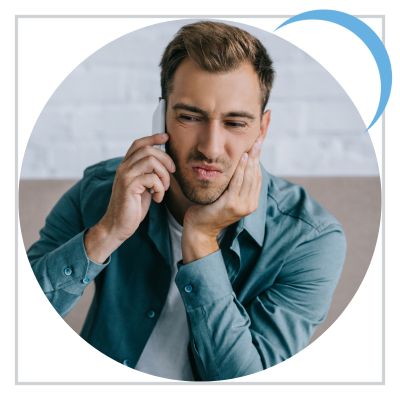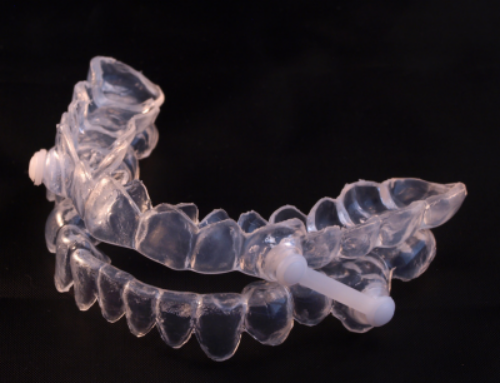Temporomandibular Joint (TMJ) disorders can cause pain and discomfort in the jaw joint and the muscles that control jaw movement. It is a common condition that affects millions of people worldwide, and its causes can vary from person to person.
What is the TMJ?
The temporomandibular joint is a hinge joint that connects the lower jaw (mandible) to the temporal bone of the skull, located in front of the ear on each side of the head. This joint allows us to open and close our mouth, chew, talk and yawn. It is a complex joint that includes muscles, ligaments and a disc that acts as a cushion between the bones.
Why does it hurt?
The exact cause of pain or discomfort is not always clear. Here are some possible reasons why your TMJ may hurt:
- Trauma: Any trauma to the jaw, such as a blow to the face or a car accident, can damage the TMJ, leading to pain and discomfort.
- Bruxism: Grinding or clenching the teeth, especially during sleep, can put excessive pressure on the TMJ, causing pain and discomfort.
- Arthritis: Arthritis can affect any joint in the body, including the TMJ. It can cause pain, swelling, and stiffness in the joint.
- Malocclusion: Misaligned teeth can cause an improper bite, leading to stress on the TMJ.
- Stress: Emotional and psychological stress can cause muscle tension in the jaw, leading to TMJ pain.
What are the symptoms?
Some symptoms include:
- Pain or tenderness in the jaw joint, face or ear.
- Difficulty opening or closing the mouth.
- Clicking, popping, or grinding noises when opening or closing the mouth.
- Headaches, neck pain or shoulder pain.
- Dizziness or vertigo.
- Earaches or ringing in the ears.
- Toothaches or sensitive teeth.
How is it treated?
Treatment varies depending on the severity and underlying cause of the condition. Here are some common treatment options:
- Self-care: You can try home remedies such as applying heat or ice to the affected area, eating soft foods, avoiding chewing gum and practicing relaxation techniques.
- Medications: Over-the-counter pain relievers, muscle relaxants, and anti-inflammatory drugs can help alleviate some discomfort.
- Physical therapy: Exercises and stretches can help strengthen the muscles in the jaw and improve joint mobility.
- Bite guard or splint: A custom-made bite guard or splint can help alleviate TMJ pain by reducing teeth grinding and clenching.
- Surgery: In severe cases, surgery may be necessary to repair or replace the TMJ.
If you are experiencing TMJ pain or any of the symptoms mentioned above, it is essential to seek medical attention to determine the underlying cause and receive appropriate treatment. Our team at Virginia Sleep & TMJ Therapy is here for you. Call (804) 729-3474.




